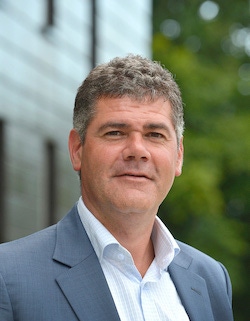Sabic to showcase certified circular solutions at K 2019
Sabic first in the industry to scale-up innovative chemical recycling process to return mixed plastic waste back to the original polymer.
July 10, 2019

Sabic plans to highlight its initiative for the production of certified circular polymers at the K show in October this year. Sabic (stand D42, hall 6) launched the chemical recycling project in Q4 of 2018 with the goal of driving a value chain transformation from a linear economy to a circular economy for plastics.
|
Sabic’s Frank Kuijpers: “While recycling by mechanical methods makes a contribution towards circularity and will play a complementary role to chemical recycling, the rates at which it can economically recycle plastic packaging waste are limited.” |
SABIC intends to build a semi-commercial, 15,000-tonnes/yr plant specifically to refine and upgrade pyrolysis oil feedstock, with the plant anticipated to enter commercial production in 2021. According to Sabic, such chemically-recycled feedstock could account for more than 50% of its raw material needs 10–20 years from now. Currently, 1,000 tonnes/yr of resin is based on chemically-recycled feedstock.
Sabic’s certified circular polymers are being produced using a pyrolysis oil feedstock from the recycling of mixed plastic waste. As part of the intended project, Sabic is now introducing this alternative feedstock into its Chemelot production site at Geleen in The Netherlands. The resultant certified circular polymers are to be supplied to branding leading customers — Unilever, Tupperware Brands, Vinventions and Walki Group — to use in the development of pioneering, high quality and safe consumer goods or packaging for food, beverage, and personal care products.
As a disruptive innovation, the introduction of Sabic’s certified circular polymers aims to transform the value chain, where Sabic, its upstream suppliers and downstream customers work in tandem to upcycle mixed plastic waste back to the original polymer for high-quality applications, thereby enabling circular reuse of the planet’s natural resources. While recycling by mechanical methods makes a contribution towards circularity and will play a complementary role to chemical recycling, the rates at which it can economically recycle plastic packaging waste are limited according to Sabic’s Frank Kuijpers, General Manager of Corporate Sustainability. The company’s certified circular polymer process, however, enables the creation of brand new polymers, offering a real alternative to mechanical methods and closing the recycling ‘loop’.
As global brand leaders or frontrunners in their respective areas, Unilever, Tupperware Brands, wine closure supplier Vinventions and lamination film converter Walki Group recognize the importance of sustainability and their role in the circular economy. They also recognize the critical roles purity, quality, and safety play in consumer products or packaging. Sabic’s chemical recycling process is a drop-in alternative offering similar properties and processing characteristics to traditionally produced materials.
“To enable a genuine shift from a linear economy to a circular one, while meeting the needs of our customers and consumer, the maximum value of the plastics waste stream needs to be retained and reused”, said Bob Maughon. “Sabic has been committed to investing in scientific and technological expertise and fostering close collaborations with both upstream suppliers and downstream customers in order to overcome this challenge, and we are proud to say that we are first in the industry to scale-up this innovative chemical recycling process.”
The polymers are certified through the International Sustainability and Carbon Certification plus (ISCC+) scheme that certifies renewable content and standards across the value chain from source to end product. The ISCC+ certification works on what is known as a “mass balance system”, meaning that for each tonne of renewable feedstock fed into the cracker, a proportion of the output can be claimed as renewable.
About the Author(s)
You May Also Like





